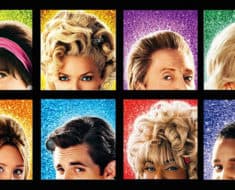
Businessinsider
Where would we be without our obsessive nature over a hit TV series or film? Well, somewhere different for sure, but who wants to give up that pure joy you feel when you see your favourite TV show printed on some PJ’s or a travel mug when you’re doing your grocery shopping? Because that is how you know a) a TV show has hit cult status and b) you are more invested in it than anything else since you can remember.
There is already a TV show in your mind, isn’t there?
Hold that thought – because this piece is going to discuss how our favourite cult franchises have an impact on pop culture and the world as we know it.
Consumer Influence and Cult Franchises
When we love a franchise, it is only natural to want it plastered everywhere and anywhere. From branded clothes and other items such as stationary, homeware and even candy, to merchandise replicas or collectables, franchises are out there capitalising on viewers’ infatuation, and many people love it. Not only that, but consumerism on the whole experiences a shift, because not only is a brand of a franchise now popular, so is the concept. An example of this could be Harry Potter, and then an influx of demand or interest for absolutely anything wizard related.
Cult Franchises and Interaction
Once upon a time, we would all just watch a show; it would end, we might feel a little sad for our fictional friends that have gone. Then we would move on, but when something goes ‘viral’ or develops a cult following, this very much changes the narrative of how viewers and fans want to interact with their new favourite program. Not only are there tours so mega-fans can immerse themselves behind the scenes and get up, close and personal with their favourite sets, but there are also online spaces where people can write their own ‘fanfiction’ and meetups where fanatics can get to know each other. Cult franchises do not die when the franchise ends, just a new and different beginning starts.
Cult Franchises and Identity
Aside from the obvious branded accessories and clothing, cult franchises could also have a wider effect on society and identity. An example of this could be Twilight, where many girls around the world all of a sudden wanted a “boy” that was impossibly cold (both emotionally and temperature-wise), often left without saying goodbye, and refused to answer any valid questions. And boys practised their broody-lost-but-romantic-but-confused-but-mysterious look in the mirror every morning before applying a hefty dose of hair gel. Hopefully, the majority of us have now unlearned both of those, but humans are not perfect.
Cult franchises definitely shape us, and when something that big happens to society collectively, everyone can relate, and everyone who knows about it wants to be a part of it. We see ourselves in these relatable characters and want our lives to be as exciting or stable as the ones we see on TV, and when a large part of the population is experiencing this, it can cause quite a shift.









































